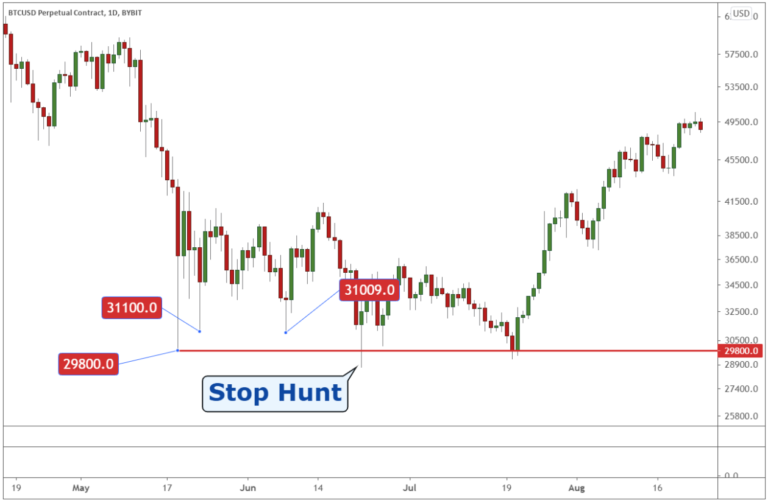The trend of mimic trading has seen a remarkable rise in recent years, revolutionizing the way people engage in the financial market. This cutting-edge approach permits investors to replicate the strategies of adept traders, leveraging their skills for comparable investment outcomes. It’s an attractive option for both experienced traders and novices, offering a chance to benefit from the insights of seasoned market players. With the rapid expansion of digital currencies and the introduction of easy-to-use platforms, mimic trading has grown in popularity as an effective strategy for managing the intricacies of financial markets. In this article, we will tackle an essential query: Is mimic trading legally acceptable?
Before exploring the legal dimensions, understanding the potential pros and cons of this method is crucial. These elements significantly affect the practicality and legal perspective of mimic trading, defining its framework. By thoroughly assessing these benefits and potential pitfalls, investors can arrive at informed decisions, considering the legal and regulatory context of mimic trading platforms and their operations.
While exploring the legality of copy trading in India, it’s also beneficial to consider the top proprietary trading firms that may offer structured frameworks for this trading approach.
Why is Copy Trading Prohibited in Certain Nations?
Mimic trading, a popular investment approach, faces certain constraints and outright prohibitions in some nations. Grasping the reasons for these restrictions sheds light on the regulatory landscape and the steps taken to protect investors. A few key factors lead to the outlawing of mimic trading in certain areas.
- Firstly, regulatory issues are at the forefront. In some countries, authorities view mimic trading as a form of financial service that requires licensing or registration. Without proper control, the risk of fraud, poor risk disclosure, or inadequate investor protection increases. As a result, these nations might implement strict rules to maintain their financial system’s integrity and protect investor interests;
- Secondly, the legality of mimic trading is influenced by cultural and ethical norms. In some cultures, the idea of copying another person’s trades conflicts with values of individuality and self-sufficiency. These societal beliefs can result in the banning or restricted acceptance of mimic trading practices;
- Risk management is another crucial aspect. Mimic trading involves replicating others’ trading strategies, inherently carrying certain risks. Some nations might view the possibility of novice investors blindly following high-risk strategies without fully understanding the risks as problematic. To protect these investors from potential losses, these countries might choose to ban or limit mimic trading;
- Lastly, the varied interpretations of financial regulations and legal frameworks play a role in the differing legal statuses of mimic trading worldwide. Different countries may have varying interpretations of regulations, leading to different views on the legality of mimic trading.
The Legality and Accessibility of Copy Trading on Binance
The question of whether copy trading is legal and accessible on Binance, a well-known cryptocurrency exchange, is of significant interest to investors. The permissibility of copy trading on Binance hinges on legal factors and the platform’s offerings. The legal standing of copy trading varies globally due to diverse regulatory environments. Users are advised to become well-acquainted with their local laws concerning copy trading to ensure they are abiding by them.
Binance provides a range of trading options, including social trading platforms that support copy trading. This feature allows users to follow and emulate the strategies of seasoned traders. However, the availability and features of copy trading on Binance might differ based on regional legal constraints and adherence to specific regulations. Users should thoroughly examine Binance’s terms of service and platform capabilities to identify any restrictions pertinent to their location.
Assessing the Legality of Copy Trading on Coinbase
Coinbase, a prominent cryptocurrency exchange, has integrated a copy trading function. In addition to this, various external platforms and services have been established to enable copy trading for Coinbase users. These external services link to your Coinbase account through API keys, allowing them to carry out trades on your behalf. While utilizing these services isn’t inherently illegal, it’s important to proceed with caution. Ensuring the trustworthiness and security of the selected service is critical. It’s recommended to conduct extensive research and confirm the authenticity of any external service before providing them with access to your account.
Regulatory Insights into Copy Trading on Kraken
As a well-established cryptocurrency exchange, Kraken adheres to the prevailing regulations regarding copy trading. The exchange is diligent in following the guidelines set by financial authorities, thereby providing a copy trading environment that is both secure and transparent.
For users, it’s essential to familiarize themselves with the policies and guidelines of the copy trading platform. Understanding the details of the copy trading features, along with any restrictions or requirements, is crucial for a compliant and informed trading experience.
Legality of Copy Trading Services on Bybit
Bybit, recognized as a significant player in the cryptocurrency derivatives exchange market, offers copy trading services that are fully legal. The exchange is known for its compliance with relevant regulations and holds the necessary licenses for operation.
Bybit ensures a regulated and secure environment for its users to participate in copy trading. It’s important to note that the legal status of copy trading on Bybit can vary based on the user’s jurisdiction. Users are obliged to be aware of and adhere to the laws and regulations related to copy trading in their respective regions.
OKX: A Verified Platform for Copy Trading
OKX stands as a legitimate and reputable platform for copy trading. Positioned among the top cryptocurrency exchanges, OKX operates within the bounds of regulatory frameworks and abides by pertinent laws, ensuring a secure and transparent trading experience for its users.
It’s important for users to recognize that the legal status and regulatory requirements for copy trading on OKX may differ based on their location. Users should diligently review OKX’s terms of service, platform policies, and guidelines specific to copy trading. This is to ensure they are in compliance with the laws and regulations applicable to their jurisdiction. Through thorough research and a deep understanding of OKX’s offerings, users can confidently participate in copy trading activities on the platform.
Legality of Copy Trading in the United States
Copy trading is indeed legal in the United States. However, the legality and regulatory requirements for copy trading can vary depending on the specific practices and platforms involved. In the US, the Securities and Exchange Commission (SEC), along with other relevant authorities, oversee copy trading activities. Compliance with the applicable securities laws and regulations is crucial for both individuals and platforms engaged in copy trading. This ensures not only the legality of their activities but also the protection of investors.
Legal Aspects of Copy Trading in Australia
In Australia, engaging in copy trading is permissible, provided that there is adherence to the country’s regulatory framework. The Australian Securities and Investments Commission (ASIC) is responsible for supervising copy trading activities. For a platform to offer copy trading services, it must possess an Australian Financial Services (AFS) license. Australian regulations emphasize fair and transparent practices, protection of investors, and effective risk management. Thus, traders and investors in Australia should opt for platforms that comply with these regulatory standards.
Regulatory Framework for Copy Trading in Canada
Copy trading is legally permissible in Canada, contingent on adherence to the country’s securities laws. The Canadian Securities Administrators (CSA) oversee the regulatory framework governing copy trading. While there are no specific laws that explicitly prohibit copy trading in Canada, platforms and individuals offering these services are required to comply with registration requirements and measures aimed at protecting investors. Conducting a thorough legal analysis and reviewing platform policies is vital for anyone involved in copy trading in Canada.

Examining the Legal Status of Copy Trading in India
The legal status of copy trading in India is currently a gray area. The regulatory framework specific to copy trading activities has not been fully established by the Securities and Exchange Board of India (SEBI) or other relevant regulatory bodies. This lack of clarity creates ambiguity around the legality and regulatory requirements for copy trading in the country. Therefore, individuals and platforms interested in copy trading in India should stay vigilant and keep abreast of any updates or changes in the regulatory landscape.
Regulatory Landscape for Copy Trading in the UAE
In the United Arab Emirates (UAE), the legality of copy trading hinges on adherence to the guidelines established by the country’s financial authorities. The UAE boasts a highly regulated financial sector.
The primary aim of the UAE’s copy trading regulations is to safeguard investors. The Securities and Commodities Authority (SCA) is the regulatory body overseeing copy trading activities. It mandates that trading platforms secure the necessary licenses and conform to certain guidelines. These guidelines encompass a range of requirements, including sufficient capital holdings, clear risk disclosure to investors, assessments to ensure investor suitability, and transparency in the execution of trades. Through these regulatory measures, the UAE aims to cultivate a secure and transparent environment for investors engaged in copy trading.
Legal Status of Copy Trading in the United Kingdom
Copy trading is a legal activity in the United Kingdom. The Financial Conduct Authority (FCA), which supervises financial services and markets in the UK, sets the regulatory framework governing copy trading activities. Platforms and individuals who offer copy trading services are required to obtain the appropriate licenses and adhere to regulations focused on protecting investors. This includes compliance with various investor protection measures set forth by the FCA.
Islamic Finance Principles in Copy Trading
In the realm of Islamic finance, several fundamental concepts play a crucial role in assessing the permissibility of copy trading according to Sharia law. These include riba (prohibition of interest-based gains), maisir (prohibition of excessive speculation), and gharar (avoidance of excessive uncertainty in transactions). The concept of Mudharabah supports joint business endeavors through authorization for one party to invest another’s capital. Zakat mandates the purification of wealth by allocating a portion of assets to charity. Halal investing principles prohibit investment in certain sectors like tobacco, financial companies engaging in interest-charging practices, entertainment stocks, and others deemed prohibited. A thorough analysis is required to determine whether copy trading aligns with these Islamic guidelines.
Examining the Presence of Riba in Copy Trading Practices
Copy trading, in its fundamental practice of replicating other traders’ positions, does not inherently involve riba, as it does not generate interest-based returns by default. However, certain aspects of some copy trading platforms may introduce riba. This includes opportunities for margin trading that incur interest charges or the maintenance of interest-bearing accounts for cash balances. For adherence to halal principles, it is crucial for traders to thoroughly assess copy trading providers and steer clear of leveraging or margin trading that could involve prohibited riba. The core mechanism of copy trading is free from interest, but certain platform-specific features warrant careful examination for halal compliance.
Analysis of Maisir in Copy Trading Activities
At a superficial level, copy trading might seem akin to excessive speculation (maisir), as it involves investors replicating others’ trades without forming their own investment strategies, somewhat resembling gambling. However, counterarguments suggest that with meticulous due diligence on the statistics of traders being copied and the implementation of robust risk management strategies, copy trading can conform to Islamic standards for prudent investment. While concerns about the “mirror investing” aspect persist in some interpretations, norms like evaluating trader performance, limiting position sizes, and eschewing haphazard trading practices could potentially align copy trading with Islamic principles and avoid contravention of maisir stipulations.
Examining Gharar (Uncertainty) in the Context of Copy Trading
Gharar in Islamic finance refers to the prohibition of excessive uncertainty in contracts and transactions, and its presence in copy trading is a point of debate. Critics of copy trading argue that it introduces significant uncertainty due to the lack of insight into the underlying analysis and rationale of the trades being mirrored, leading to jahala, or ignorance. However, many copy trading platforms attempt to mitigate this uncertainty by offering features like detailed histories of traders’ past transactions, statistical metrics, and communication channels that allow for inquiries into the reasoning behind current positions. These measures aim to diminish the unknown elements inherent in copy trading, making the level of gharar more acceptable. Nonetheless, the issue of gharar in copy trading necessitates a nuanced and careful assessment.
Copy Trading and Mudharabah Principles
The comparison of copy trading to a mudharabah joint venture arrangement is a topic of active debate among Islamic finance scholars. Some suggest that by authorizing a copy trading platform to replicate trades, investors effectively engage in a mudharabah-like arrangement, where the platform acts as an investment manager. However, a counterargument highlights the lack of direct asset ownership in copy trading, which differs from traditional mudharabah agreements where investors typically have a share in tangible assets under management. This divergence raises questions about whether copy trading adequately fulfills the criteria for a joint venture under Islamic finance principles. The discussion remains unresolved, with credible arguments presented on both sides of this complex issue.
Meeting Zakat Obligations Through Copy Trading
Should copy trading be deemed permissible under Islamic guidelines, it presents a potential avenue for Muslim traders to meet their zakat obligations. The principle of zakat requires Muslims to give a portion of their wealth, typically 2.5%, to help the poor. Successful copy trading strategies that yield profits could facilitate the fulfillment of this religious duty. Conversely, losses incurred through copy trading might impact a trader’s ability to contribute zakat. This aspect underscores the importance of prudent strategy and risk management in copy trading, particularly for those seeking to uphold their religious financial obligations.
Copy Trading and Halal Compliance
The debate over whether copy trading is halal under Islamic law sees varied opinions among Islamic finance researchers and religious authorities. Proponents argue that as long as copy trading avoids riba (interest), excessive leverage, and speculative practices, it aligns with authorized investment management principles akin to mudharabah, thus rendering it broadly halal. Advocates highlight that the rigorous vetting of platforms and traders can ensure sharia compliance. Furthermore, the potential profitability of copy trading could positively contribute to zakat obligations. This viewpoint is supported by several reputable scholars who assert that copy trading can be considered halal if managed appropriately.
Counterarguments on the Haram Nature of Copy Trading
However, there are notable Islamic scholars who challenge the halal status of copy trading. They argue that the inherent lack of transparency in other traders’ strategies and the absence of direct control over the replicated trades introduce elements of gambling-like speculation, which is prohibited under maisir. Additionally, the absence of tangible asset ownership in copy trading raises concerns about its compliance with mudharabah principles. Critics emphasize the risks associated with speculative practices and potential encouragement of improper investment behaviors, suggesting that copy trading may be considered haram according to traditional sharia standards.
Islamic Fiqh Council Fatwas on Copy Trading
The complexity of applying Islamic prohibitions to modern financial practices like copy trading is highlighted in the varying fatwas issued by major Islamic Fiqh councils. For instance, the European Council for Fatwa and Research (ECFR) has prohibited copy trading due to its speculative nature, while the Accounting and Auditing Organization for Islamic Financial Institutions (AAOIFI) allows it conditionally, emphasizing the importance of thorough trader analysis. These differing stances from authoritative bodies like ECFR and AAOIFI illustrate the intricate and multifaceted nature of this topic, requiring a deep and informed understanding of traditional Islamic prohibitions and their application in the context of contemporary fintech practices. This divergence in opinions underscores the need for investors to carefully consider the reasoning behind major fatwas when evaluating their investment decisions in the realm of copy trading.
Halal Compliance Criteria in Copy Trading
For Muslim investors considering copy trading within sharia standards, meticulous evaluation of platforms for halal compliance is crucial. Key considerations include avoiding platforms that feature interest-based margin trading or that maintain accounts accruing riba. It’s also vital to scrutinize the fee structures to ensure they don’t conceal interest charges. Platforms that offer transparent access to traders’ historical performance and allow for selective copying are preferable, as they facilitate thorough due diligence. Additionally, opting for providers that enable the screening of investments and restrict trading in haram sectors further supports halal compliance. Overall, diligent vetting of copy trading platforms is essential to minimize risks related to halal compliance.
Legitimacy of Copy Trading as an Investment Strategy
Copy trading is a legitimate and recognized investment strategy that enables individuals, including crypto asset managers, networkers, traders, and investors, to mimic the trades of experienced counterparts. While the broader investment sphere does include fraudulent schemes, it’s important to distinguish that copy trading, as a concept, is not inherently a scam. It provides an avenue for investors to capitalize on the insights and strategies of seasoned traders, potentially mirroring their successful investment outcomes.
Nonetheless, vigilance and thorough research are imperative when selecting a copy trading platform or service. It’s advisable to choose reputable and regulated platforms that prioritize transparency, authenticate performance data, and incorporate risk management tools. By opting for a trustworthy platform and making informed decisions, individuals can safely engage in copy trading and potentially leverage the acumen of skilled traders.
Identifying Reliable and Secure Copy Trading Platforms

To engage in copy trading securely and effectively, thorough research and evaluation of platforms are essential. Key steps include:
- Investigate the regulatory status of platforms and their adherence to standards set by reputable financial authorities;
- Assess the platform’s overall track record and standing within the investment community;
- Evaluate the transparency and security measures of the platform, ensuring they align with your requirements;
- Read through user reviews and testimonials to gauge the platform’s reliability and user satisfaction;
- Review the platform’s terms, conditions, fee structures, and customer support services;
- Confirm that the platform employs robust encryption and offers features like two-factor authentication for enhanced security;
- Check the platform’s alignment with your specific investment goals and strategies;
- Consider the usability and user-friendliness of the platform’s interface;
- Seek advice and recommendations from experienced users or peers who have engaged in copy trading.
Conclusion
Copy trading is a legitimate practice with the potential to benefit investors. However, it is imperative to adhere to regulations and opt for reputable platforms to ensure a secure and transparent environment. Investors should conduct thorough research, stay informed about relevant laws, and exercise caution when encountering platforms with warning signs. By proactively educating themselves and making well-informed investment decisions, investors can confidently navigate the copy trading landscape and safeguard their financial interests.
It’s essential to remember that knowledge empowers, and staying informed and responsible allows investors to potentially leverage the expertise of skilled traders while mitigating possible risks. Take proactive steps now and become an informed and responsible participant in the dynamic world of copy trading.
FAQ
Yes, copy trading is regulated in many countries worldwide to ensure investor protection and market integrity. Naturally, regulations vary by jurisdiction and are enforced by financial authorities and securities commissions.
To ensure that you are engaging in copy trading within legal boundaries, it is essential to follow these steps. Firstly, research and understand the regulations and laws surrounding copy trading in your country. Secondly, choose a reputable and regulated copy trading platform that complies with applicable laws. Lastly, adhere to the platform’s terms and conditions, including risk management guidelines, and stay updated with any regulatory changes.
Copy trading’s permissibility under Islamic law is complex. However, platforms like Finestel allow customization to support halal compliance by avoiding riba and speculation. With proper diligence, copy trading can potentially satisfy sharia standards, but interpretations vary. Investors must weigh considerations carefully.











